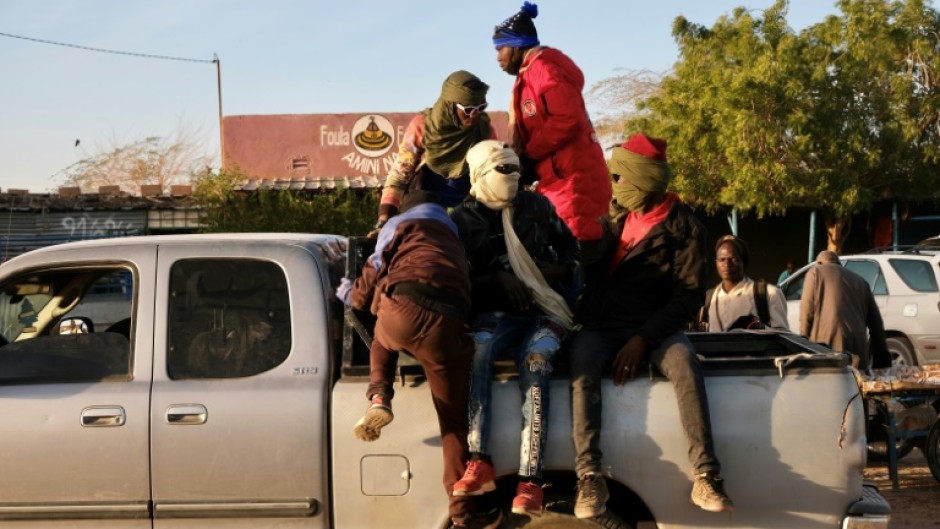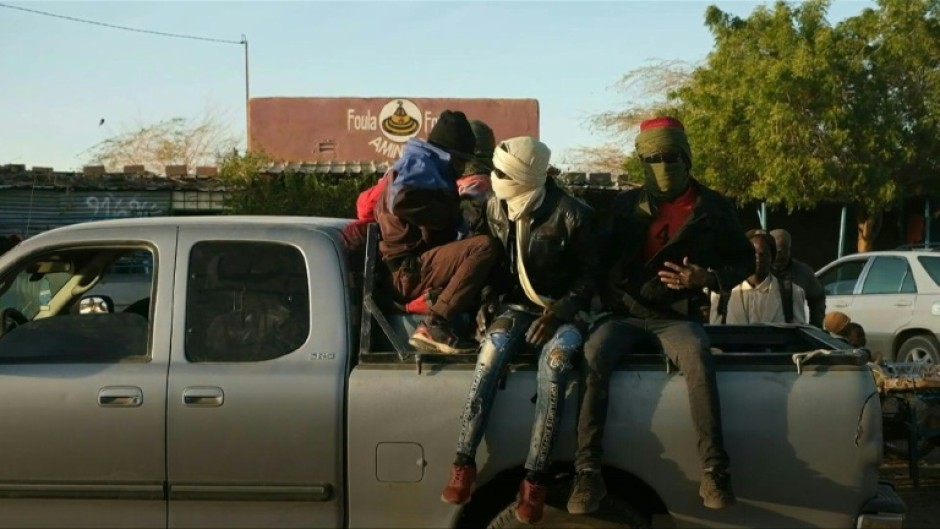Their faces wrapped up against the sun and sand, they pile into the back of waiting pickup trucks in northern Niger ahead of a gruelling journey across the Sahara.
Hawkers of protective turbans, cigarettes and water sachets do the rounds in the hope of one last sale before the vehicles pull out of the main bus station headed for Libya.
Known as the gateway to the desert, the historic town of Agadez is again bustling as a key transit hub for migration.
Niger's military leaders who seized power in a July coup lost no time in repealing a law which criminalised the trafficking of migrants through the nation.
The November quashing of the 2015 legislation, which was unpopular and controversial for endangering the lives of migrants by pushing their transporters to illegal and unsafe roads, aims to make it easier for people to reach North Africa and eventually Europe.
It was also designed to kickstart the economy in a region plagued by weapons and drug traffickers.
"They're packed in like sardines," Aboubacar Halilou, one of those involved in the transportation, said.
"But it's our job, people need to go."
- Clandestine routes -
Latecomers rush to pay their fare and show their travel documents to the police.
Once everyone is checked, the trucks join up with a military convoy which once a week travels north -- a guarantee of relative safety.
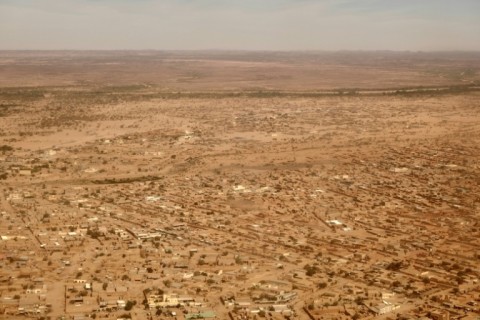
"People applauded this repeal," Halilou said.
"The couriers who were in prison have already been freed and are in the process of resuming work because it's a very lucrative activity."
But a wary distrust persists -- most drivers shy away from reporters.
Some transporters continue to use clandestine routes.
They "have got used to circumventing" and "don't yet have confidence in the system", Mohamed Anacko, president of the Agadez regional authority said.
Beaten-up trucks with no registration plates fill the alleyways of the neighbourhood from where the migrants set off.
Clandestine convoys depart at night, avoiding the bus station and the administrative formalities.
In this part of town, "loading is done in the open air, in the street", said Azizou Chehou, coordinator of the NGO Alarm Phone Sahara, which rescues migrants lost in the desert.
"You don't know who the driver is, who are the passengers, where they originate or their destination."
NGOs hope the repeal will lead to the sector being regulated and help keep migrants safe.
- Risks on route -
Yousssouf Sakho is waiting at one of the discreet holding houses used by the couriers before leaving.
The Ivorian handed over his telephone and paid 300,000 CFA francs (just under $500) to go to Libya.
"You can't have 100-percent confidence in the transporter," he conceded.
Some migrants turn up only to find the money they have already paid wasn't handed over to the driver.
Once underway, they risk being left stranded in the desert at the first sign of bandits or security forces.
- 'Like any travel agency' -
Clamping down on the clandestine sector is no easy task after nine years of under-the-radar people trafficking.
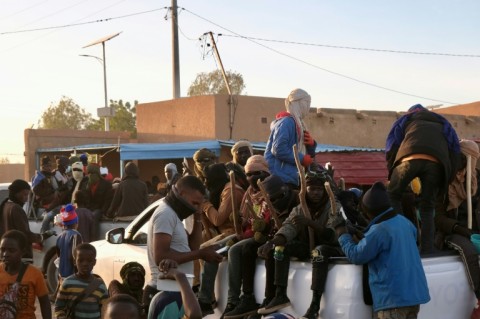
The 15th-century Tuareg town of Agadez, an important crossroads of the caravan trade and a UNESCO World Heritage site, is in a region that has seen several rebellions and has a porous border.
"Most of the people who work in migration are former rebels," Bachir Amma, head of a couriers' association, said.
Deprived of their income by the 2015 law, many turned to trafficking other things or armed theft.
"For us, this isn't trafficking. The migrant pays for his ticket. We do roadmaps, we work like any travel agency," Amma said.
In passing the 2015 law, Niger became a strategic partner of the European Union as it struggled to stem a migrant flow towards conflict-wracked Libya.
Brussels was the main financial backer for retraining projects for migration stakeholders in the Agadez region.
But the EU suspended cooperation with Niger after the July 26 coup.
The new regime said the law had been adopted "under the influence of certain foreign powers".
Its repeal was widely welcomed by Agadez residents.
"The authorities have seen the international community turn its back... Niger was a kind of valve for the migratory flows.
"So, we had to reopen the valve," Agadez mayor Abdourahamane Touaroua said.
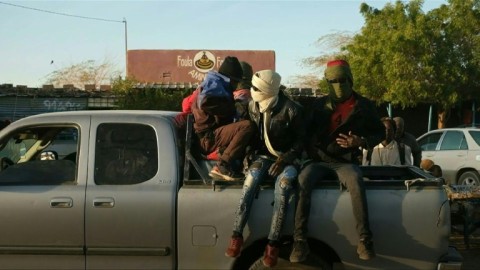
The couriers meanwhile say business is still slow but will soon get back to where it once was.

